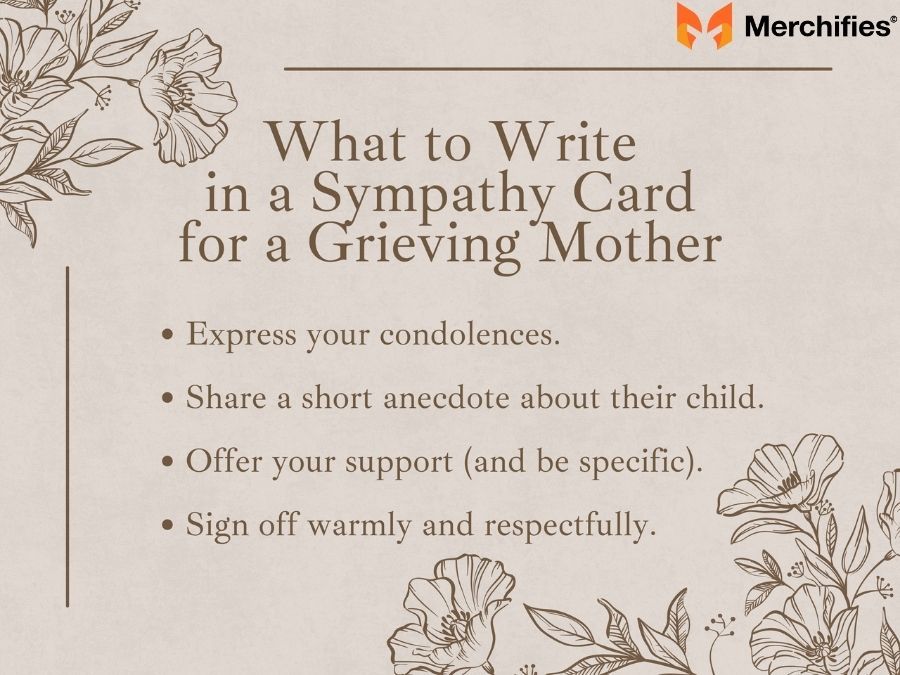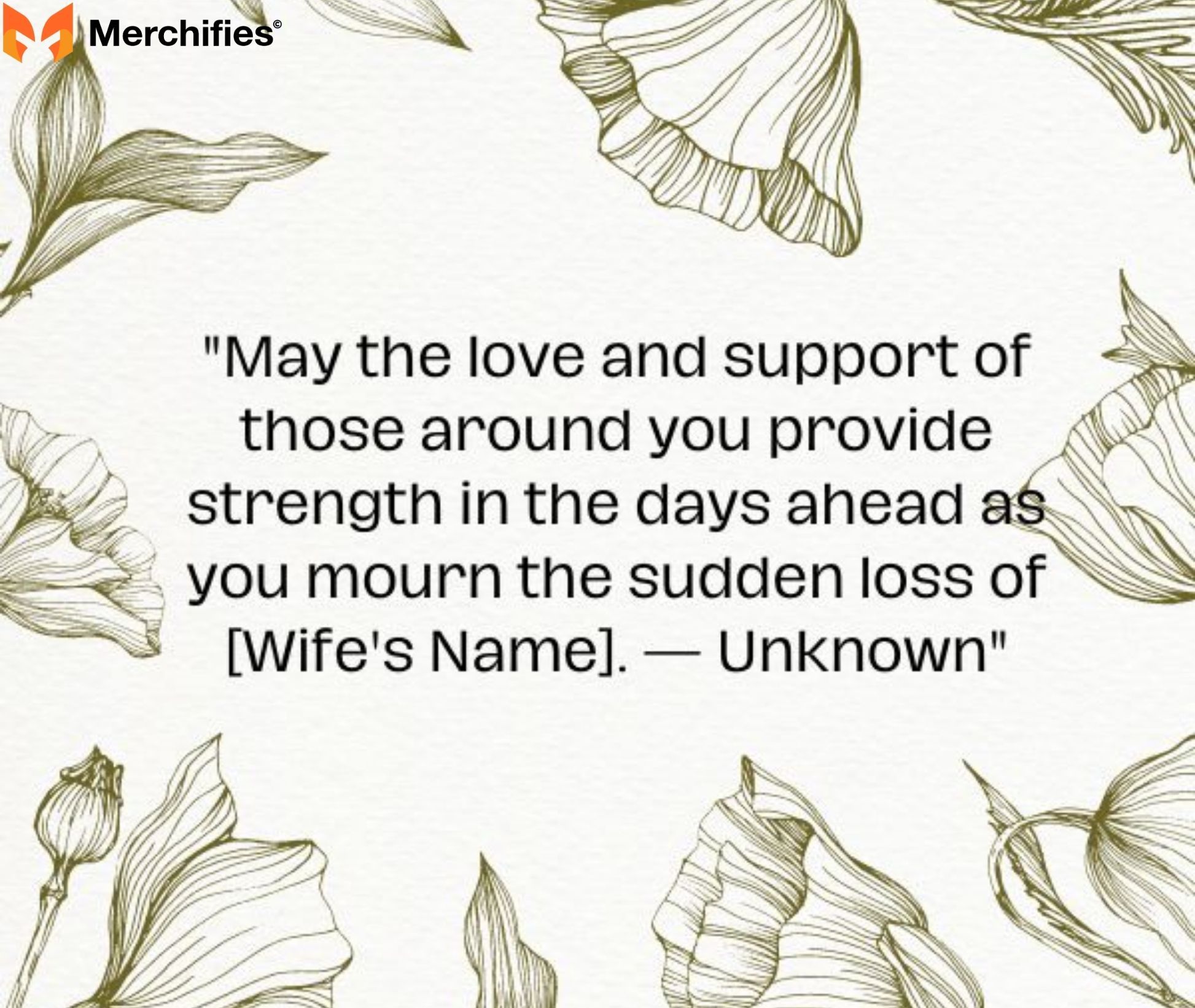-da0801079a650a2e.jpeg)
Finding the Right Comforting Words for Death: A Guide to Expressing Empathy and Support
Find the right comforting words for death, whether it's the loss of a father, mother, child, husband, sister, brother, or any loved one. Our guide offers empathetic phrases and practical advice to truly support someone grieving.

Blog Post Contents
Grief is a profound, often overwhelming experience that touches every corner of a person's life. When someone you care about is navigating the immense pain of loss, knowing what to say can feel incredibly daunting. You want to offer solace, but fear saying the wrong thing, or worse, nothing at all. While no words can erase the sting of pain, genuine sympathy and heartfelt support can indeed provide a vital source of comfort during an incredibly difficult time. This article aims to be your compassionate guide, providing empathetic insights and specific phrases tailored for various types of loss, helping you offer truly meaningful comfort. As an experienced relationship expert and grief support advocate, Hannah Gale shares her insights to help you navigate these sensitive conversations, emphasizing the critical importance of understanding the grieving process itself.
Understanding Grief: Why Comforting Words Matter
The Nature of Loss
Grief is a deeply personal and unique journey, often unfolding in unexpected ways and without a predictable timeline. It’s essential to remember that everyone experiences loss differently. Some may feel intense sadness, others anger, numbness, or even relief, especially after a long illness. The critical point is to acknowledge the immense pain without falling into the trap of trying to "fix" it. There is no quick fix for a broken heart, only space for healing and support.
The Power of Your Presence and Words
In the face of such profound sorrow, even simple, sincere comforting words can make a significant difference. Your willingness to reach out, to acknowledge their pain, and to simply "be there" validates their feelings and demonstrates that they are not alone. It's about showing you care, offering a gentle anchor in a stormy sea of emotion. Sometimes, the most powerful comfort comes not from profound statements, but from the quiet strength of your compassionate presence.

Foundational Principles for Offering Comfort
Empathy Over Platitudes
When offering comforting words for death, it's crucial to prioritize genuine empathy over well-meaning but often hurtful clichés. Phrases like "they're in a better place," "everything happens for a reason," or "time heals all wounds" can inadvertently minimize a person's pain. Instead, focus on validating their feelings and expressing your sincere sorrow. Your goal is to connect with their emotional reality, not to offer unhelpful silver linings.
Authenticity and Sincerity
The most effective comforting words for a loved one come straight from the heart. Don't feel pressured to craft elaborate sentences. Simple, honest expressions of care and concern are far more valuable than eloquent but insincere remarks. If you're struggling to find the "perfect" words, it’s often better to admit, "I honestly don't know what to say, but I'm so incredibly sorry for your loss," than to offer something that feels forced. Your vulnerability can itself be a source of connection.
Simplicity and Brevity
Individuals who are grieving often have a limited capacity for long conversations, complex messages, or extended social interactions. Keep your comforting words concise and to the point. A short, heartfelt message can be far more impactful than a lengthy monologue. Respect their need for space and allow them to respond (or not respond) at their own pace.
Acknowledging the Loss Directly
Don't shy away from using the deceased's name or directly acknowledging the specific loss. While it might feel awkward, doing so shows that you recognize the reality of their pain and the significance of the person they have lost. Avoiding the topic can make the grieving person feel isolated, as if their loved one never existed or their pain is too much for others to bear.

Comforting Words for the Death of a Loved One (General)
When searching for comforting words for death of a loved one, it’s helpful to consider your relationship with the deceased and the grieving individual.
When You Don't Know the Deceased Well
If you don't know the person who passed away well, your focus should be on expressing sympathy for the grieving person themselves.
- "I am so incredibly sorry for your loss. My heart aches for you."
- "My deepest sympathies go out to you and your family during this incredibly difficult time."
- "Thinking of you constantly and sending you immense strength and comfort."
- "Please know that I'm here for you in any way you need, whether it's a listening ear or practical help."

When You Knew the Deceased
If you had a personal connection with the person who died, share a specific memory or acknowledge their unique qualities. This brings their memory to life and can offer genuine comfort.
- "I'm so saddened to hear about [Name]. They truly were a wonderful person, and I'll miss them dearly."
- "I'll always remember [fond memory/quality of the deceased], like when they [specific anecdote]. They touched so many lives."
- "Their light shone so brightly, and I feel incredibly lucky to have known them. Their spirit will be deeply missed."
- "The world feels a little dimmer without [Name] in it. They made such an impact."

Specific Comforting Words for Different Relationships
Navigating loss is especially sensitive when it involves specific relationships. Finding the right comforting words for death, tailored to the unique bond, can make all the difference.
Comforting Words for the Death of a Father
Losing a father often means losing a protector, a guide, and for many, a first hero. The comforting words for death of a father should acknowledge this foundational role.
- "Your father was a truly remarkable man, and his legacy of strength and kindness will undoubtedly live on through you and your family."
- "I know how much your dad meant to you. His wisdom, his humor, and his unwavering love will be deeply missed by all who knew him."

- "He taught you so much, and you carry so much of him within you. May you find comfort in those cherished lessons and memories."
- "A father's love is eternal. May you find peace and solace in every beautiful memory you shared with him."
Comforting Words for the Death of a Mother
The loss of a mother often leaves an irreplaceable void, as she is frequently the heart of the family, embodying nurturing and unconditional love. Offering comforting words for death of a mother requires acknowledging this profound bond.
- "Your mother's love was boundless and truly special. She had a unique way of making the world a brighter place for everyone around her."
- "I'll always remember her incredible kindness, her unwavering strength, and her boundless generosity. She was a truly extraordinary woman."

- "Her warmth, her spirit, and her nurturing presence will be profoundly missed by everyone who had the privilege of knowing her."
- "She lives on in every beautiful memory you hold dear and in the loving spirit she instilled in you."
Comforting Words for the Death of a Child
This is perhaps the most unimaginable pain a person can endure. Approaching a grieving parent requires extreme sensitivity and humility. The focus of comforting words for death of a child is simply to express profound sorrow and unwavering support.
- "There are absolutely no words to express how truly, terribly sorry I am for the unimaginable loss of your precious [child's name]."
- "My heart aches deeply for you and your family. May you somehow find moments of strength amidst this impossible sorrow."
- "I am holding you in my thoughts and prayers during this incredibly painful time. Please know I am here for you."
- "May [child's name]'s beautiful memory bring you some peace, however fleeting, amidst your immense pain."

Comforting Words for the Death of a Husband/Wife (Partner)
Losing a life partner, a soulmate, means the loss of a shared future and a profound connection. Comforting words for death of a husband or a wife must acknowledge this deep, often lifelong bond.
- "Your love story with [Name] was truly inspiring, a testament to true partnership. I am so deeply sorry for your profound loss and the void their absence creates."
- "He/She was your rock, your confidant, and their absence leaves an irreplaceable void. My heart goes out to you with my deepest sympathies."
- "May you find strength and comfort in the beautiful life you built together and the countless cherished memories you shared."
- "I remember how much joy [Name] brought into your life every single day. My heart breaks for you, and I'm here to support you in any way."

Comforting Words for the Death of a Sister/Brother
The bond between siblings is unique, filled with shared history, childhood memories, and often a deep friendship. Providing comforting words for death of a sister or comforting words for death of a brother means recognizing this special connection.
- "The bond you shared with [Name] was so incredibly special and unique. I'm so genuinely sorry for this immense and heartbreaking loss you're experiencing."
- "I'll always cherish the memories of [Name] and their incredible spirit. They truly lit up every room they entered."
- "Losing a sibling creates a unique kind of pain, a severing of a lifelong connection. Please know I'm here to support you through this difficult journey."
- "May their memory be a source of constant comfort, strength, and even moments of warmth for you in the days ahead."

Beyond Words: Actions That Speak Louder Than Phrases
While finding the right comforting words for death is important, actions often resonate even more deeply. Practical support can be a lifeline for someone who is grieving.
Offering Practical Support
Instead of saying "Let me know if you need anything," which puts the onus on the grieving person, offer specific, actionable help.
- "Can I bring you a meal on Tuesday or Thursday this week? I'm making [dish], or I can pick up something specific for you."
- "I'd love to help with errands, childcare, or even just walking your pet for a while. Just let me know what would be most helpful."
- "Is there anything I can take off your plate for the next few weeks – perhaps managing calls or helping with thank-you notes?"
The Gift of Listening
Sometimes, the greatest comfort you can offer is simply your presence and a willingness to listen without judgment. Allow them to talk (or not talk) about their loved one, their feelings, or anything else. You might ask, "Would you like to talk about [Name] today?" or simply sit in comfortable silence with them.
Honoring Their Memory
Sharing fond memories or stories of the deceased can be incredibly comforting. It helps keep their spirit alive. Consider suggesting a memorial gesture, such as planting a tree in their honor, making a donation to a cause they cared about, or creating a memory book.
Consistent, Long-Term Support
Grief doesn't disappear after the funeral. True support extends for weeks, months, and even years. Make an effort to check in periodically, remembering significant dates like birthdays or anniversaries of their passing. A simple text saying, "Thinking of you today" can mean the world.

What to Avoid Saying and Doing When Someone is Grieving
While intentions are usually good, some phrases and actions can unintentionally cause more pain.
Common Pitfalls and Clichés
Avoid using phrases that minimize their pain or offer simplistic solutions:
- "They're in a better place." (This dismisses their pain of absence.)
- "At least they're no longer suffering." (While true, it doesn't diminish the survivor's suffering.)
- "Everything happens for a reason." (This can imply their pain has a purpose, which is not helpful.)
- "You'll get over it." (Grief is integrated, not "gotten over.")
Minimizing Their Pain
Never try to lessen their feelings or suggest they should be "stronger":
- "Be strong." (They are being strong just by surviving each day.)
- "You have other children/family." (This implies the deceased is replaceable.)
- "You're lucky to have had them for so long." (While true, it invalidates their current pain.)
Making it About You
Unless it's a very close, reciprocal relationship and they explicitly ask, try to avoid making their grief about your own experiences or losses. Focus entirely on their pain and their needs.
Unsolicited Advice or Religious Impositions
Unless they specifically ask for guidance, avoid telling them what they should do, how they should feel, or what they should believe. Respect their personal process and their spiritual journey.

Self-Care for the Supporter: Acknowledging Your Own Role
Supporting someone through grief is emotionally taxing. Remember, you can't pour from an empty cup.
It's Okay to Feel Helpless
Witnessing someone else's profound pain can be difficult and even trigger your own emotions. It's natural to feel helpless; acknowledge these feelings without letting them paralyze you.
Set Boundaries
Know your limits. You cannot be available 24/7, and it's important to protect your own well-being. Offer what you genuinely can without overextending yourself.
Seek Support if Needed
If you find yourself struggling with the emotional toll of supporting a grieving person, don't hesitate to talk to a trusted friend, family member, or a professional counselor about your own feelings.
Conclusion: Your Presence is the Greatest Comfort
Ultimately, finding the perfect comforting words for death is less about crafting eloquent sentences and more about demonstrating genuine empathy, consistent presence, and unwavering support. There are no magical phrases that will erase someone's pain, but your sincere intention to connect, to listen, and to offer practical help can make an immeasurable difference. As Hannah Gale often emphasizes in her work, "The greatest gift you can give someone who is grieving is to simply show up, genuinely care, and hold space for their pain." Trust that your compassionate presence and a few heartfelt words are truly the greatest comfort of all. Use these insights to offer meaningful support, reminding those who mourn that they are seen, loved, and not alone on their journey through grief.
-d4c38c342cdf20ca.jpeg)


-b555fcc6b204c456.jpeg)




